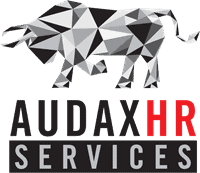The time it takes to fill open positions is increasing, with employers taking 44 days on average to make a hire, according to new data from human capital research and advisory firm The Josh Bersin Company, and global recruitment company AMS.
Time-to-hire rates have been growing every year since before the pandemic, according to the data, adding a full day on average during the first quarter of 2023. Forecasts suggest that time-to-hire will continue to be a challenge for most employers this year.
The Josh Bersin Company defines time-to-hire as the number of calendar days between a job requisition being approved and the candidate accepting the offer. Data from half a million hires in 2022 and 2023 was analyzed to create the report.
“Time-to-hire is not going to get better the way the job market is looking,” said Josh Bersin, HR industry analyst and the founder and CEO of The Josh Bersin Company, based in Oakland, Calif. “Why does it take so long to hire people? One reason is that the unemployment rate is very low, so people can be very discriminating in the jobs they take. Another reason is that the hiring process in many companies is a bureaucratic mess.”
Janet Mertens, senior vice president of research at The Josh Bersin Company and lead research author of the report, added that additional factors for the increasing time-to-hire include skills shortages, talent scarcity in some occupations, more selective job seekers looking for better pay and flexible work, and the large, lasting exodus of people from the workforce during the pandemic.
“Time-to-hire has been trending up, and is about 40 percent higher than pre-pandemic,” said Stephen Bronars, an economist and partner at Edgeworth Economics in Washington, D.C. Bronars believes time-to-hire could be closer to 50 days, based on data from the U.S. Bureau of Labor Statistics. “Time-to-hire is elevated from where it was before the pandemic, but it’s way above what it was 20 years ago,” he said.
Across industries, the research shows a widening gap between “easy to fill” and “difficult to fill” roles, with the average range stretching between 24 and 58 days. In professional and business services, for example, the range between roles is 25 days on the low end and 66 days on the high end. Tech roles range from 29 to 66 days. Hiring times for HR jobs range from 25 to 56 days.
“The wide variation in hiring time across industries suggests companies need to adopt targeted strategies to avoid losing talent in skill sets that are harder to find,” Mertens said.
By industry, energy and defense companies have the highest average time-to-hire rates, at 67 days, due to the specialization of roles and small talent pools available. The professional services category is also above the average, at 47 days, and is expected to continue experiencing longer-than-average hiring times this year, while the retail sector experienced the shortest average time-to-hire in 2022 and is projected to continue this trend into 2023.
Bronars said retail jobs tend to be more entry level, characterized by high turnover and high-volume hiring, resulting in a quicker time-to-hire.
Additional reasons for the speedy hiring in retail include the availability of a larger talent pool and the opportunities created by e-commerce roles, Mertens said.
“IT and tech roles have been notoriously difficult to hire for the last several years,” she said. “Hiring times in 2022 continued this trend, with the hardest-to-fill roles taking close to 70 days for some companies. In 2023, following a massive recalibration of the tech sector, tech talent supply has now improved, and hiring times have dropped considerably, with average time-to-hire for this role decreasing to 41 days.”
Mertens said sales and marketing jobs experienced a reduction in volume as economic uncertainty affected most industries in recent months. “As 2023 progresses, volumes are expected to rise in sales roles, and hiring times will also likely increase,” she said.
She added that the average time-to-hire for HR roles in 2022 was about 42 days. She expects that rate to rise slightly this year as more employers return to in-person work settings.
Improving Time-to-Hire
Mertens said that employers expecting to thrive in the current environment of steep competition for candidates must think about talent acquisition in a more strategic and systemic way, so hiring is not just an external practice but includes skills-based role design, internal mobility, and retention through career-boosting talent development.
“We now know that hiring alone will not solve the talent gaps organizations face,” she said. “Instead, pace-setter companies look at talent in a systemic way—recruiting, retention, development, pay, goal setting and management should be integrated together, creating systemic talent strategies.”
She recommended tapping into internal talent pools, removing barriers to internal mobility, seeking gig and contract workers, and embracing automation and predictive analytics to drive hiring efficiencies.
“Another thing we have seen is the mindset change to move away from going it alone,” Mertens said. “Companies that build an ecosystem of vendor partners like RPO [recruitment process outsourcing] firms are experiencing more stability during sudden shifts in demand.”
Bronars added that ultimately, taking more time to hire may not be a bad thing. “Extra days in time-to-hire is challenging, but if you fill the role sooner with someone who is not a good fit, you’re not solving your problem,” he said. “In some of these positions, the cost-per-hire is high, so it pays to take your time and find the right fit instead of hiring quickly and having to replace that person in a short period of time. If the hire is not a durable match, you’ll be going through the same thing six months later.”
This content was originally published here.



